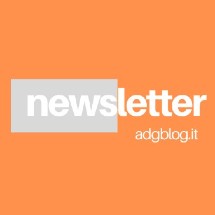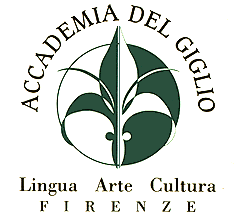Here is a short description of the project Adgblog, which has received the European Label 2007 last December 20th at the Italian Ministry of Education in Rome.
The project
The blogs can be considered as a new form of communication, which thanks to their user-friendliness and ease of maintenance, editing and updating encourage greater interaction between the host and the viewer via the ability to “post” comments or articles turning passive journalism into engaging dialogue. Thus, our project Adgblog aims at reaching a public of varied interactive readers by using a vocabulary which may vary according to the subject of each article or according to the kind of readers the article is addressed to. In this perspective Adgblog intends to be a useful instrument for teaching Italian as a foreign language, but also a virtual space for cooperation and interchange between different cultures and languages, a long-lasting space where an intercultural dialogue is made possible mainly through the use of the Italian language, whose study is one of the main subjects of our school, the Accademia del Giglio.
Adgblog has been involving teachers, various friends. former and present students of our institute, as well as all those who have shown any interest in leaving a comment after each post in their own language.
The specific objectives the adgblog project aims to achieve are both to contribute to increased participation in lifelong learning by people of all ages, and also create a friendly multilingual space where it is possible to promote not only the Italian language and culture but also the linguistic diversity .
The development
Adgblog has been publishing Italian language exercises, which can be done by learners either at home or in their classes with the help of their teachers. For some activities the staff of Adgblog has also offered a mentoring service on the net. Other main developing strategies of the blog are: the cooperative learning among students, the use of some posts to explain, clarify or translate some issues that students have previously discussed in their courses; the editing of the feedback of an activity which an entire class has made; the editing of various reports written by some students in their mother tongue about their experiences abroad as well as about their personal interests; the editing of videos showing various extra-curricular activities or highlighting the main points of a language lesson.
The impact
By implementing the four language abilities (reading, listening, writing and speaking) through cooperation among different learners the blog as a new teaching instrument can be easily associated with more traditional or established language teaching methods.
On one hand Adgblog has turned out to be a useful mean of supporting the development of innovative ICT-based pedagogies and practices for Lifelong Learning. On the other hand it can be considered especially by distant learners a more informal and relaxing way to studying a language. Although in Italy the blog is still out of classrooms, young generations seem to be more and more interested in this new way of communication. We have actually experienced that this curiosity and concern have created new sinergyes and group dynamics in courses where the younger students have not only taught the more mature ones the use of a blog, but they have also shown them how writing posts for a blog can be a creative and motivating way toward education.
Moreover, many readers of Adgblog have realized that, as web users, they now have a new tool for improving their language skills, an implement which enables them to combine listening, reading and writing skills with the pleasure of studying, learning and watching.
Last but not least, Adgblog has turned out to be an easy access point to Italian language and culture, thanks mostly to depth and variety of its posts, which are often aimed at encouraging the learners to take part actively to the discussion on a specific matter and therefore maximize the learning (according to the Content and Language Integrated Learning).







Commenti recenti